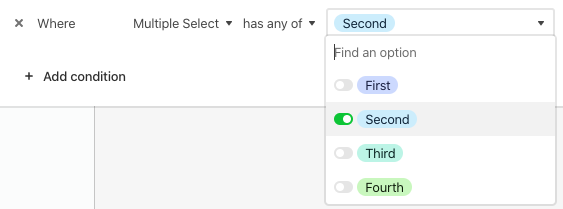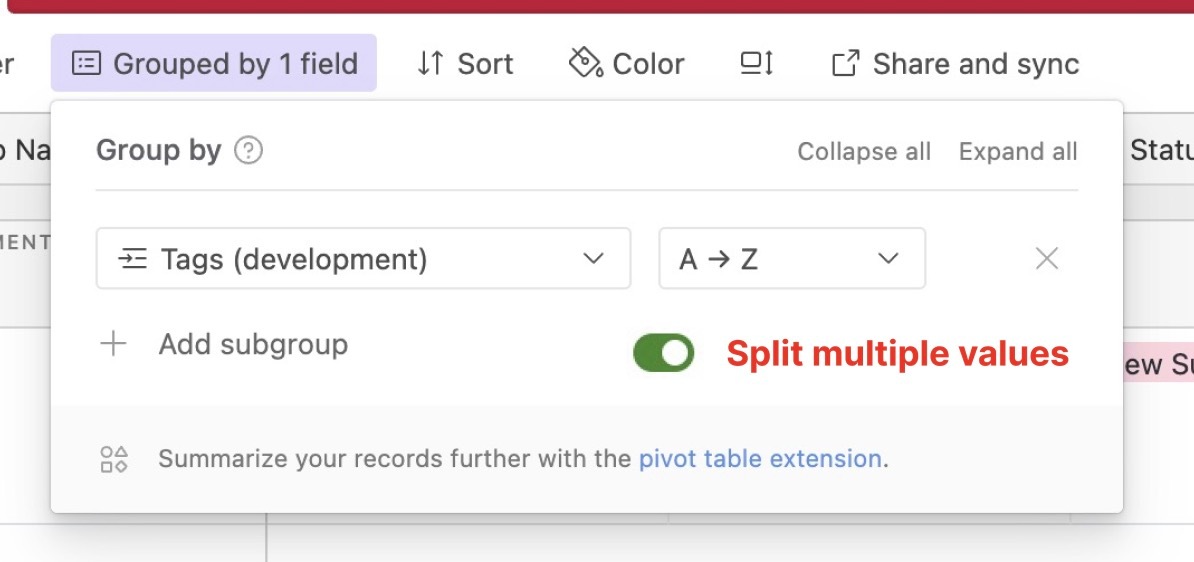AirTable acknowledges that users like to create many views. What they do not understand is that while yes, views are critical, we are forced to create more views than we want for one key lacking feature (bug IMHO):
"Grouped by" view on “Multiple select” field does not separate the individual values
E.g., if a table has one record with “Product1” available in “USA” and a second record with “Product2” available in “USA”, “Canada”, then grouping by availability will currently yield two results, “USA” and “USA, Canada”. Instead it should show “USA” with Product1 and Product 2, and “Canada” with Product2.
USA
- Product1
- Product2
Canada
- Product2
Of course, this gets much worse in real-world examples where you have larger numbers. The manual, painful workaround? Manually create a filtered view for each multiple select value. UGH!
Note: the UNNEST command in SQL uses an array field to create one row per array element






